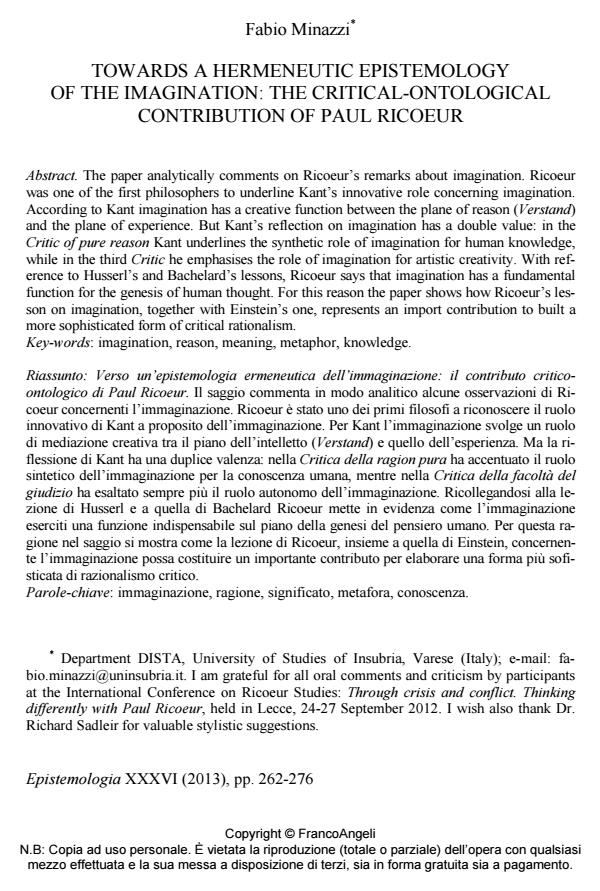Towards a hermeneutic epistemology of the imagination: the critical-ontological contribution of Paul Ricoeur
Journal title EPISTEMOLOGIA
Author/s Fabio Minazzi
Publishing Year 2014 Issue 2013/2
Language English Pages 15 P. 262-276 File size 606 KB
DOI 10.3280/EPIS2013-002005
DOI is like a bar code for intellectual property: to have more infomation
click here
Below, you can see the article first page
If you want to buy this article in PDF format, you can do it, following the instructions to buy download credits

FrancoAngeli is member of Publishers International Linking Association, Inc (PILA), a not-for-profit association which run the CrossRef service enabling links to and from online scholarly content.
The paper analytically comments on Ricoeur’s remarks about imagination. Ricoeur was one of the first philosophers to underline Kant’s innovative role concerning imagination. According to Kant imagination has a creative function between the plane of reason (Verstand) and the plane of experience. But Kant’s reflection on imagination has a double value: in the Critic of pure reason Kant underlines the synthetic role of imagination for human knowledge, while in the third Critic he emphasises the role of imagination for artistic creativity. With reference to Husserl’s and Bachelard’s lessons, Ricoeur says that imagination has a fundamental function for the genesis of human thought. For this reason the paper shows how Ricoeur’s lesson on imagination, together with Einstein’s one, represents an import contribution to built a more sophisticated form of critical rationalism.
Keywords: Imagination, reason, meaning, metaphor, knowledge.
Fabio Minazzi, Towards a hermeneutic epistemology of the imagination: the critical-ontological contribution of Paul Ricoeur in "EPISTEMOLOGIA" 2/2013, pp 262-276, DOI: 10.3280/EPIS2013-002005